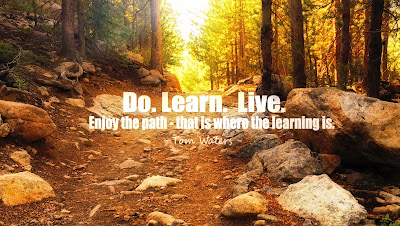Climate Conflicts: Uncertainty Among Teachers
It's Rose's first year on your campus. She has promise to be a great teacher and only has 2 years of experience. The students love her, you like what you see in walk-throughs, and she gets along with her team. However, there's a problem, and it's going to impact your entire school climate - uncertainty.
Innovation Misinterpreted
Rose attended the last team meeting and offered some great ideas about improving students' math computation skills. She listened to the feedback on her team and decided to implement her ideas with the adjustments suggested by her teammates. Sound good, right?Well, it is good.
The problem is the uncertainty on the team about your expectations for innovation.
At a recent staff meeting, you made it clear that you expect everyone to work together. Your exact words were, "Every teacher on your team needs to be on the same page."
The Problem with Your Solution
You were addressing a problem that was arising on a 2nd-grade team where each teacher was teaching completely different pieces of the curriculum. Some were even ignoring the district scope and sequence altogether!You figured a simple statement at the faculty meeting would cover the bases for everyone. You had good reasons for this approach:
- efficient
- simple
- non-confrontational
What you didn't take into account was the miscommunication that would result from a whole-group attempt to address a small-group problem. Now, Rose's teammates are second-guessing her innovation.
Two experienced, but average teachers, are talking about Rose instead of talking with Rose. They think she is the person you're addressing in your message at the faculty meeting. They think she is not "on the same page". They think she is going to get them in trouble.
The lesson is this. Humans need to know. We need to know what and why. If we don't know for certain, we make it up. It's easier to make it up than to search it out. And whatever we make up, we talk about looking for confirmation. That's what Rose's teammates are doing. But here's how they are negatively impacting the school climate:
- Their discussions turn into gossip.
- The trust in the team is undermined.
- Assumptions about Rose slowly decrease the amount of open communication on the team.
- Friction results as Rose attempts to innovate further, which is interpreted by her teammates as not "being on the same page".
- The more her teammates remain uncertain about your expectations, the more they conjure fear.
- Fear leads them into self-interest (read more about fear on campus) and self-preservation - never a good disposition for a healthy school climate!
Humans need to know what and why. If we don't know with certainty, we make it up. Which most often leads to conflict.
The Simple Solution to Uncertainty
Use an individual or small-group approach to a small-group problem. In this case, the 2nd-grade team needs you to clarify your expectations and allow a coach to guide them in the right direction. Use a candid approach (Candor in Crucial Conversations) without vague generalities.
Also, establish the habit in your school culture for teachers to talk to, never about, their teammates. Problem-solving requires conflict to be discussed together. Concerns should always be addressed with the person, with respect. Not about the person.
Your school climate requires these solutions. Your students will benefit from them.




Comments
Post a Comment
What are your thoughts?